2018-2019度高中英语上学期第11周 模块5(第1-2课时) 课文语言知识点教学设计 新人教版必修1
- 格式:doc
- 大小:51.00 KB
- 文档页数:8
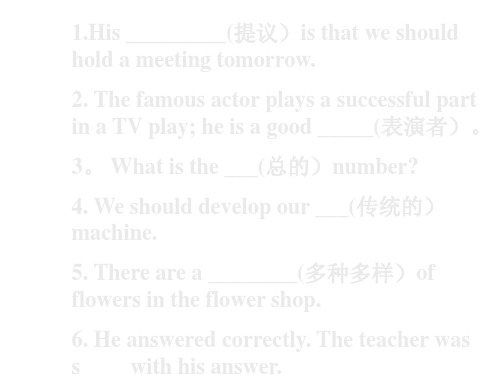
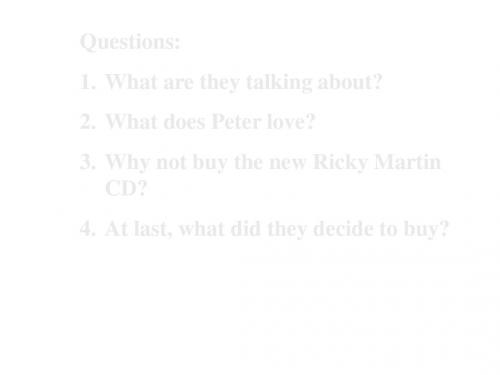
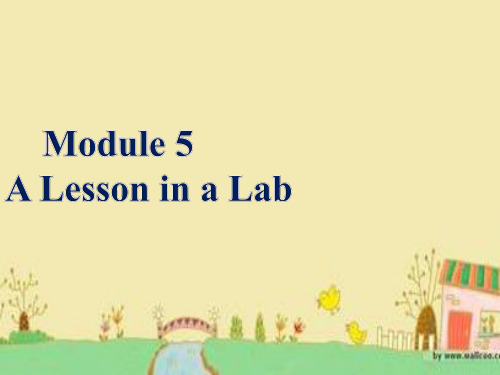
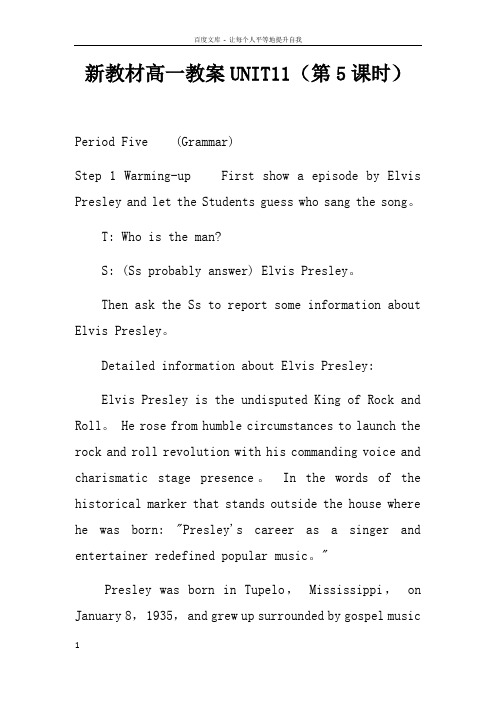
新教材高一教案UNIT11(第5课时)Period Five (Grammar)Step 1 Warming-up First show a episode by Elvis Presley and let the Students guess who sang the song。
T: Who is the man?S: (Ss probably answer) Elvis Presley。
Then ask the Ss to report some information about Elvis Presley。
Detailed information about Elvis Presley:Elvis Presley is the undisputed King of Rock and Roll。
He rose from humble circumstances to launch the rock and roll revolution with his commanding voice and charismatic stage presence。
In the words of the historical marker that stands outside the house where he was born: "Presley's career as a singer and entertainer redefined popular music。
"Presley was born in Tupelo,Mississippi,on January 8, 1935, and grew up surrounded by gospel musicof the Pentecostal church。
In 1948 the family moved to Memphis, where he was exposed to blues and jazz on Beale Street。
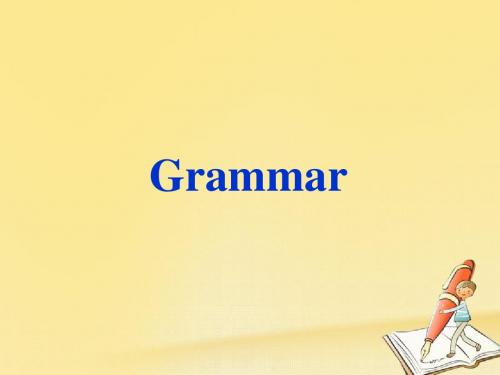
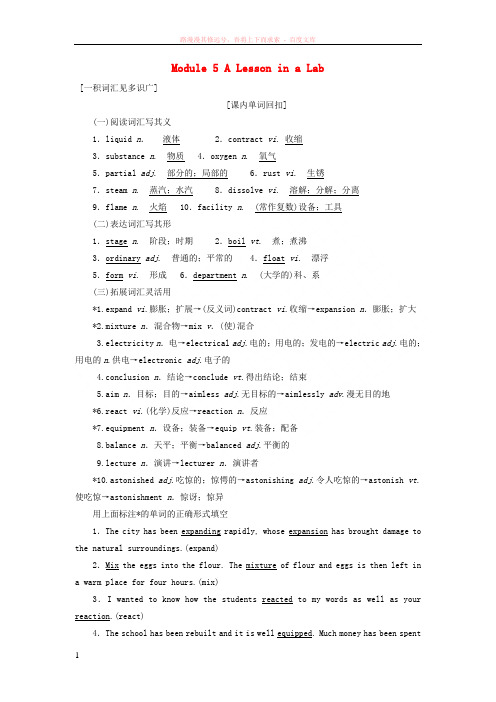
Module 5 A Lesson in a Lab[一积词汇见多识广][课内单词回扣](一)阅读词汇写其义1.liquid n.液体2.contract vi. 收缩3.substance n. 物质 4.oxygen n. 氧气5.partial adj. 部分的;局部的6.rust vi. 生锈7.steam n. 蒸汽;水汽8.dissolve vi. 溶解;分解;分离9.flame n. 火焰 10.facility n. (常作复数)设备;工具(二)表达词汇写其形1.stage n. 阶段;时期2.boil vt. 煮;煮沸3.ordinary adj. 普通的;平常的4.float vi. 漂浮5.form vi. 形成 6.department n. (大学的)科、系(三)拓展词汇灵活用*1.expand vi.膨胀;扩展→(反义词)contract vi.收缩→expansion n.膨胀;扩大*2.mixture n.混合物→mix v.(使)混合3.electricity n.电→electrical adj.电的;用电的;发电的→electric adj.电的;用电的n.供电→electronic adj.电子的4.conclusion n.结论→conclude vt.得出结论;结束5.aim n.目标;目的→aimless adj.无目标的→aimlessly adv.漫无目的地*6.react vi.(化学)反应→reaction n.反应*7.equipment n.设备;装备→equip vt.装备;配备8.balance n.天平;平衡→balanced adj.平衡的9.lecture n.演讲→lecturer n.演讲者*10.astonished adj.吃惊的;惊愕的→astonishing adj.令人吃惊的→astonish vt.使吃惊→astonishment n.惊讶;惊异用上面标注*的单词的正确形式填空1.The city has been expanding rapidly, whose expansion has brought damage to the natural surroundings.(expand)2.Mix the eggs into the flour. The mixture of flour and eggs is then left in a warm place for four hours.(mix)3.I wanted to know how the students reacted to my words as well as your reaction.(react)4.The school has been rebuilt and it is well equipped. Much money has been spenton the office equipment.(equip)5.To our astonishment,_the famous actress died. That's to say, we were astonished at the news of her sudden death, and it was really astonishing.(astonish)[话题单词积累]1.laboratory /lə'bɒrəˌt(ə)rI/ n.实验室2.experiment /Ik'sperImənt/ n. 实验3.research /rI'sɜːtʃ/ n. 研究4.paper /'peIpə/ n. 论文5.attempt /ə'tem(p)t/ n.& vt. 尝试6.determination /dIˌtɜːmI'neIʃ(ə)n/ n. 决心7.preparation /ˌprepə'reIʃ(ə)n/ n. 准备8.assignment /ə'saInm(ə)nt/ n. 分配;功课9.explanation /eksplə'neIʃ(ə)n/ n. 解释10.practice /'præktIs/ n. 练习11.effect /I'fekt/ n. 影响;效果12.reward /rI'wɔːd/ vt. 奖励13.mark /mɑːk/ n. 分数14.degree /dI'griː/ n. 学位15.scholarship /'skɒləʃIp/ n. 奖学金16.analyze /'ænəˌlaIz/ vt. 分析17.observe /əb'zɜːv/ v. 观察18.measure /'meʒə/ v. 测量;估量19.concentrate /'kɒns(ə)ntreIt/ v. 全神贯注20.explore /Ik'splɔː/ v. 探索21.argue /'ɑːɡjuː/ v. 争论;辩论22.debate /dI'beIt/ v. 争论;辩论23.strengthen /'streŋθ(ə)n/ v. 加强24.assess /ə'ses/ vt. 评定;评估25.summarize /'sʌməraiz/ v. 概括;总结26.acquire /ə'kwaIə/ vt. 获得27.preview /'priːvjuː/ vt. 预习28.review /rI'vjuː/ v. 复习29.creative /kriː'eItIv/ adj. 创造性的30.worthwhile /wɜːθ'waIl/ adj. 值得做的[二积短语顿挫抑扬][课内短语回扣](一)根据汉语写出下列短语*1.put_..._in_order 把……按顺序排列;使……有条理2.at_the_top/bottom 在顶/底部3.find_out 发现;查清4.add_..._to_... 往……加入……*5.keep_(...)_out_of 不让……进入;避开……;远离*6.go_ahead 开始做某事;(口语)请说吧;请用吧ed_to 过去(常常)……8.in_the_area_of 在……领域*9.be_proud_of 为……感到骄傲/自豪*10.be_supposed_to 应当;理应11.react_with 与……起反应12.keep_down 使(声音等)压低(二)用上面标注*的短语完成下列句子1.As parents, we are_supposed_to be strict with our children and observe their behavior closely.2.He was as busy as a bee trying to put the books in_order.3.We must keep_out_of the war. Peace is what we desire.4.The building of the new bridge will go_ahead as planned.5.Reflecting on her volunteer experience, Tina was_proud_of what she managed to achieve together with her local colleagues.[话题短语积累]1.take an exam 参加考试2.cheat in the exam 考试作弊3.get full marks/scores 得满分4.make it 获得成功5.pay off 取得成功;得到回报6.go over 复习7.turn in 上交8.live up to one's expectations 达到某人的期望9.sign up for 报名参加10.get together 聚在一起11.be/get involved in 参与12.make a speech 作报告13.skip the class 逃课14.drop out of the school 辍学15.pass/get through the exam 通过考试16.fail the exam 考试不及格17.realize one's dream 实现梦想18.achieve success 获得成功[三积句式写作扮靓][课内句式仿写]1.“分数+of+n.”作主语时,谓语动词的数与of后的名词一致[例句] Twothirds of the earth's surface is water.[仿写] 这个国家有三分之一的面积被森林覆盖,并且大多数公民是黑人。
M5U1Yeading秘密和谎言亲爱的安妮:我觉得我的朋友汉娜背叛了我。
从小学起我俩就是最好的朋友,几乎每天都在一起。
因为我们成绩好,喜爱学习,其他同学有时会说我俩没趣,但我们喜欢那样。
我们都很用功,成绩在学校一直很优秀。
星期一那天,我们搞了一次突袭性的数学小测验。
我以为它非常简单,一点也不担心考试成绩。
小测验之后,我说起话来听上去一定洋洋自得,说它实在太简单了,我肯定能取得好成绩。
第二天下课后,我的数学老师却告诉我,我得了全班最低分!我感到非常羞愧,这么简单的小测验没能及格,我真是笨极了!后来,我假装很开心,但汉娜还是觉察到哪儿有点不对劲。
午餐前,我们一起去女子洗手间时,我承认考得有多么糟糕。
我求她不要告诉任何人,她说她会替我保守秘密。
但是第二天,当我走进数学课教室时,我就注意到同学们在盯着我看。
当我坐下时,我惊讶地发现桌子上有一张纸,上面写着:“笨蛋萨拉得了D等!”我难过得想哭。
我想汉娜一定是在答应过我不会告诉任何人之后将我的成绩告诉了同学们。
大家一定都在背后嘲笑我!我非常生气,径直走到汉纳跟前,告诉她我们不再是朋友了,因为她不能信守诺言。
她很不安,发誓说她没有告诉任何人。
但是,能看到成绩的人只有老师和学生自己。
她说一定是有人在洗手间偷听我们的谈话,但我不相信她的解释。
我想我永远也不会真正地原谅她。
现在,我失去了我最好的朋友。
我该怎么办呢?你真诚的,萨拉陷入困境的友谊亲爱的安妮:我叫安德鲁。
我17岁,碰到了一个难题。
我最好的朋友马修已经停止跟我说话了。
我们从小就是好朋友,一起在学校足球队踢球。
上个星期,我们与另一所学校的球队有一场非常重要的比赛。
那支球队很棒,我们必须集中精力。
我下决心一定要赢得比赛,但马修踢得很糟糕。
他跟不上比赛的节奏。
由于他的漫不经心,我们输了球赛。
后来,我非常生他的气,并告诉他说我觉得他没有尽全力。
他也被惹火了,说如果他的球技不如我那可不是他的错,还说我不该以这种方式和他说话。
高中英语(模块11)Unit1 Welcome to the unit and Reading全英文教案牛津版选修11Welcome to the unitTeaching Aims:1. Arrange a discussion for Ss to talk about different jobs and their choice of career in the future2. Encourage Ss to express their own opinions in the discussion.Try to develop their speaking abilityTeaching Important Point:Develop students’ speaking ability.Teaching Methods:Discussion and free talk to involve each student in class activities. Teaching Aids:1. The multimedia2. The blackboardTeaching Procedures:Step 1 Lead-in by pictures.Development and the issue of what qualities are needed for these jobs. Step 2 discussionWhat jobs do you think are particularly suitable for men or women? Why? Which job would you most like to do and least like to do? Why? Homework:1. Read the article in Part A on Page 98 in Workbook.2. Preview the reading part.ReadingSo many jobs to choose fromTeaching Aims:1.Enhance students’ reading abilities.2.Enable Ss to adopt the strategy reading for opinion in a text Teaching important points:1.Help Ss gain some knowledge about how to choose suited job, improvingtheir reading skills.2.Help them learn some language points.Teaching methods:1. Improve the students’ reading comprehension.1.Practice to get the students t o master what they’ve learnt.2.Discussion to make every student work in class.Teaching aids:1.the multi-media2.the blackboard.Teaching procedures:Step 1. Lead- inglamorous: guess the meaning of this word.She has a glamorous face. It is very attractive.Step 2 Skimming1. What does the author discuss in the article?2. Can you give two examples of the so-called glamorous jobs?3. Which jobs look dull but are actually very important?Step 3 ScanningPara One1. What is last year of high school a time for?2. Choose the meaning of “reflection” inthe text.A. light turned backB. image in a mirrorC. careful thoughts about something, sometimes for a long period of time.3. What are the three types of jobs the author talks about?popular jobsunusual jobseveryday jobs4. Guess the meaning of the word “options”.A. different choicesB. jobsC. careersPara Two1. When choosing a career, what is the author’s advice?2. What do unsuccessful actors, actresses and models have to do?3. What do successful ones have to do?4. What is the author’s attitude towards the successful career?Para three.1. What are some other popular professions?2. What are the problems with these professions?Para fourList the unusual jobs mentioned in the paragraph.2. What job did the man in the Grand Canyon National Park do?3. Which sentence shows the author’s positive attitude toward these unusual jobs?Para five1. List the ordinary jobs in this paragraph.2. What attitude of the author’s do t he following words express? 1). many ordinary jobs may look dull, but they are as essential as water to our body.2). These jobs may not seem very attractive, but they are all important.3). These people, who perform such ordinary but vital tasks, allow people to go about their daily lives.Para sixFind out the words which show the author’s positive attitude and negative attitude.Step 4 Reading strategy: reading for opinion in a textWhat attitude do the following sentences express?Negative or positive?1). It does not seem that glamorous now, does it?2). These jobs may not seem very attractive, but they are all important.3). Remember that some glamorous jobs can be rather difficult.4). Some ordinary jobs can be quite important.Step 5 Discussion1. What do you think is the most interesting job in the world?2. If you could choose to have an unusual job, what it would be and why?3. When thinking about choosing your future job, what should you consider? Why?Step 6 Language points1.… more unusual jobs o r everyday jobs are better suited to you.1) suit to 使与……相适合Eg. A good teacher suits his lessons to the age of his students.2) be suit to 适合,适宜Eg. Do you think David is suited to teaching?2. In reality, these people have to …in reality 实际上,相当于in factEg. The salesman always appeared very confident, but in reality (in fact), he was a shy and nervous young man.3. They are also under huge pressure to appear young and beautiful. under pressure 在压力下Eg. Jim doesn't work well under pressure.4. … the stress and pressure that come with these jobs.come with 伴随…与发生5. In contrast, some people find more…in contrast 相比之下6. …but they are as essential as water to our society.be essential to / be essential for对……必不可少;对……非常重要Eg. Money is not essential to happiness.7. …who clear up our rubbish.1) clear up 整理;完成;收拾Eg. Would you clear up this room before our visitors arrive?2) 解释;寻找答案;使明了to clear up a misunderstanding解除误会3) 了结;结束;变缓和Eg. I hope your troubles clear up soon.我希望你的困难尽快了结。
Module5必修一 Module5ReadingTeaching goals教学目标1. Target language目标语言a. 重点词汇expand, contract, conclusion, method, liquid, solid, iron, mixture, oxygen, electricity, aim, equipment, react, result, steam, substance, boil, float, form, dissolve, rustb. 重点句式It is hard to think of a world without metals.It is important to know how they react with different substances, for example, water and oxygen. This makes sure there is no air in the water.2. Ability goals能力目标Enable the students to describe a scientific experiment.Enable the students to learn some words concerning scientific experiment.3. Learning ability goals学能目标Help the students learn about the steps of a simple scientific experiment so that they can describe a similar one.Teaching important points教学重点Help the students learn how to describe a simple scientific experiment.Teaching difficult points教学难点Help the students understand the two tables of Passage A and Passage B.Teaching methods教学方法Listening, reading and discussing.Teaching aids教具准备A computer, a projector and a recorder.Teaching procedures & ways教学过程与方式Step Ⅰ Warming-upThe purpose of this part is to let the students know and get familiar with the new words in INTRODUCTION: expand, contract, mixture, substance, oxygen and electricity. First, write down the words on the black-board, and then teach them the meaning of each word by questioning.T: Hello, everyone! Do you know the program Lucky 52 on CCTV?Ss: Yeah!T: OK, now suppose I’m Li Yong, and you are competitors. Here are six words on the blackboard. What you should do is to guess the meanings of them. If you can’t express them in English, you may say in Chinese. The quicker, the better. Are you clear?Ss: Yes.T: Listen. What do we take in when we breathe?S1: Air.T: Right. But not exact.S2: 氧气。
T: Right. In English, it is called “oxygen”.We need oxygen to keep alive. And without it, there will be no life on this planet. OK, another question. What do we call it when we put sugar, eggs, and milk together, or we mix them together?S2: We call it mixture.T: Good. All the things that are mixed together can be called mixture. Next one, we can use one word to stand for all the things around us, which includes air, water, stone, wood, glass, iron and so on. What is this word?S3: Substance.T: Right. Next, what will happen when water turns into ice?S4: Liquid will turn into solid.T: Right. Besides this, will it have some change in size?S5: Yes. It will become larger.T: Yeah! What do we call this change?S6: It’s called “expand”.Teacher can use body language to express the meaning of “expand”.T: Now, the last one. What’s the opposite meaning of “expand”?S7: Is it “contract”?T: You are right. The meaning of “contract” is making or becoming smaller or shorter. Well, I think that all of us did very well. Now please read these words after me....Step Ⅱ VocabularyAsk the students to read the sentences in Activity 1 on page 41, and then pick out the correct ones. At the same time ask them to pay attention to the new words. At last check the answers to Activity 1 with the whole class.For Activity 2, ask the students to work in pairs to finish the task. If possible, ask them to give their reasons for doing so. For Activity 3, give the students more words to help them know that materials are around all of us, and we should use them correctly and reasonably.T: As the saying goes: Birds of a feather flock together or things of one kind come together. Now we’ll put the words in Activity 2 in pairs or groups, just like the pairs in Example. If possible, give your reasons to do so. It is a good chanc e for us to get familiar with these words. OK, I’ll give you one or two minutes to do the job.Two minutes later.T: Have you finished the task?Ss: Yes.T: Who’d like to read out your answers?S1: We’d like to put air, gas and oxygen together, because all of them are gas. And we put earth, sun and moon together, because all of them are planets.T: Quite right. How about you two boys’ answers?S2: We put gas, liquid, and solid together, because we think they are the three states of substance. And we also put contract and expand together. The two words have opposite meanings.T: I’m very glad that you can finish the task so quickly and correctly. Well, all of us know that we are living in a material world. Without these materials, whether natural or man-made, we’ll have nothing to eat, to live in, to use, to wear and so on. Now, let’s look at these words: electricity, iron, metal, steel, air, and glass in Activity 3. You have to tell which of them are natural, which of them are man-made and which of them can be both.S3: Air, iron and some metals are natural. Steel, some metals and glass are man-made. And electricity can be man-made and natural.T: Why do you think electricity is both man-made and natural?S3: Because in a storm, we can see lightening in the sky. While the electricity we are using in everyday life is from electric works. So I think electricity is both man-made and natural.T: Well, it’s a good answer. OK, can you say some other things that are man-made?Ss: There are too many such things.T: Give us some examples.S4: Cars, machines, man-made satellites, plastics and so on.T: Do you know man-made beauty?S6: I know it. Some ordinary-looking girls can become beautiful overnight.T: Do you think it is necessary to do so?S7: It’s difficult to sa y. But I think to have a beautiful mind is more important than to have a beautiful appearance.T: I agree with you. It is said that a woman with a beautiful mind is more beautiful than a woman with a pretty face.Step Ⅲ Reading (Passage A)There are three activities in this part: Activity 1: find the correct order to describe the stages of a scientific experiment; Activity 2, find the best title for the passage; Activity 3, answer some questions about the passage.Task 1: Activity 1T: Well, if you were an engineer, you would take part in the experiment of making Shen ZhouⅤ Flight. What kind of materials would you like to use?S1: I’d like to use some materials that are light enough and hard enough, so that the flight can be easily sent up into space, and doesn’t get in trouble.T: How can we find such kind of materials?S2: We can do some experiments. We can’t use natural materials only; we need both man-made and natural materials.T: That’s right. Now we’ll read a passage about a scientific experiment. P lease turn to page 44. We’ll go through Passage A. When we are doing a thing, we should do it in an orderly way. It’s especially true with a scientific experiment. Now let’s see the four words in the table:conclusion, aim, result and method. The four words are about the orders or stages of a scientific experiment. We must know these two words: result and method. What are the meanings of the other two words?S3: “Aim” should be about what the experiment is for. For “conclusion”, I have no idea.T: Right. “Aim” means purpose or object. For example, he has only one aim in life, that is, to be a millionaire. And for “conclusion”, let’s see an example first, when you have worked on a maths problem for a long time, but you still can’t work it out. So you may make a conclusion that the problem is wrong. Here, “the problem is wrong” is your conclusion. Do you understand? Ss: Yeah!T: Now who can give us some other examples to show the meaning of “aim”?S4: Many people aim to be a millionaire. But I think to serve people is the highest aim.T: What is the correct order of stages to do an experiment?Ss: It should be aim, method, result and conclusion.T: That’s right. Without aim, we don’t know where to go; without method, we don’t know how to do things well; without result, we’ll draw a blank or gain nothing; without conclusion, we’ll find what we’ve done is worth nothing.Task 2: Activity 2Ask the students to scan Passage A and find the best title for the passage.T: Please look at Activity 2. What you should do is to scan Passage A and decide which is the best title for the passage.Give the students some time to do the job and then check the answer.T: Well, what’s the best title for the passage?S4: The Reaction of Metals.T: Why?S4: The writer begins the passage by introducing the different uses of different metals. But for the rest part of the passage, including the table, he / she mainly describes several metals’ reaction with different substances.T: What a good reason it is! Now, let’s look at Activity 3.Task 3: Activity 3Ask the students to read and answer the questions below the passage. Give them some time to do the job. After that, check the answers with the whole class.Step Ⅳ Reading (Passage B)In this part, the students will read the passage and then fill in the table below the passage. There are three Tasks in this part. The first one is to ask the students to find the structure of the passage and finish the table. The second one is to deal with Activity 5. The third one is to finish Activity 6.Task 1: Structure of the passageT: Now, we’ll continue to read Passage B. The title of it is A Simple Scientific Experiment. From the passage we can see how the experiment is done. What is the structure of a description of experiment? Who can come to the blackboard to write down the structure?S: Let me try.A student comes to the blackboard and writes down the structure.A Simple Scientific Experiment:Introduction → Aim → Apparatus → Method → Result → ConclusionT: OK. We should notice that there are 3 different reactions which are respectively described with method, result and conclusion. Now, please read the passage and then fill in the table.Let the students do the job, and then check the answers with the whole class.T: Well, what is ordinary water according to the experiment?S6: I think ordinary water here means the water that has not been boiled, and has air in it. T: Right. We also call ordinary water “raw water”. Now what’s “Bunsen burner”? We often find it in labs. Now, turn to page 46, and find the picture of Bunsen burner.Task 2: Activity 5T: Now please turn to page 46. Look at Activity 5. Read Passage B again. Complete the sentences. After the students finish the sentences, ask some of them to read out the complete sentences and check the answers with the whole class.Task 3: Activity 6This part is about vocabulary study. Let the students read after the teacher, and then work in pairs to find the meanings of the new words.Explanations of some words:React: have effect on (of one substance applied to another)Steam: gas from boiling waterOil: liquid which does not mix with water, obtained from animals, plants or found in rockunder-groundBoil: (of water or other liquid) reach the temperature at which change to gas occurs Scientific: of, for, connected with, used in scienceExperiment: test carried out carefully in order to study what happens and gain new knowledge Float: be held up in air, gas or on the surface of liquid; move with liquid or airForm: give shape or form to; make, produceDissolve: (of a liquid) soak into a solid so that the solid itself becomes liquidStep Ⅴ Language PointsAsk the students to translate the following sentences, and get familiar with the sentence structures.Show the following sentences on the screen.1. It is hard to think of a world without metals.2. It is important to know how they react with different substances, for example, water and oxygen.3. This makes sure there is no air in the water.T: Before we finish this class, let’s look at the screen. Th ere are three sentences on it.Can you translate them into Chinese?Let the students translate the sentences into Chinese.T: OK. In fact, these sentences involve two sentence structures. One is: it is + adj. + to do something. The other is an object cla use. Now let’s look at more sentences to get familiar with the two sentence structures.Write down the structures on the blackboard and then show the students more sentences on the screen:1. It’s hard (difficult) to say which is better.2. It’s foolish (s illy) to act like that.3. It’s easy to learn a foreign language.4. It’s impossible to finish the job in one day.5. It’s wrong to steal.6. I only came to make sure that everything was all right.7. Father makes sure that all the lights are off before he goes to bed.8. Make certain that your facts are right.9. We must make certain that she can come.Let the students translate the sentences. If they have any difficulty, give them some help.Step Ⅵ HomeworkT: Today, we have learned some new words and two passages about scientific experiment. After class, please do Exercises 6, 7 and 8 on pages 92&93. These exercises can help us remember the new words and expressions about scientific experiment. OK, that’s all for today. See you next time. Ss: See you.。